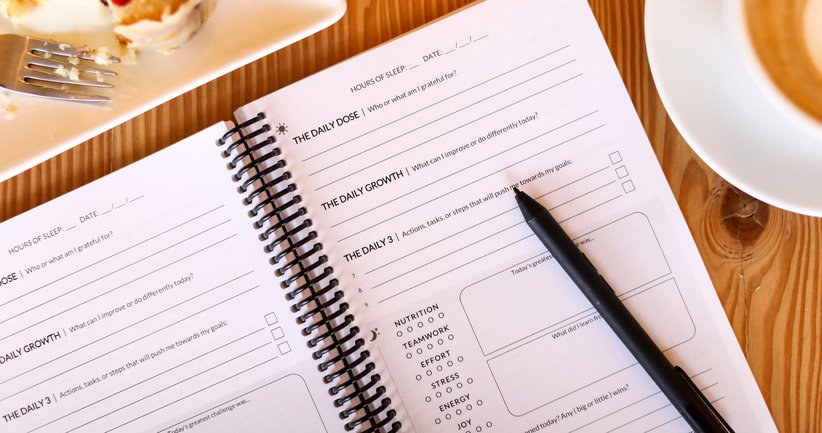If you’ve been an athlete for any length of time I’m sure you are all aware a simple fact:
- Athlete Life = Reps
There are reps in practice, reps in the weight room, and reps when you have to wake up and do it all over again.
This is particularly true for an athlete, but it’s also the case for pretty much anyone trying to master any skill. In order to improve you have to be willing to do the reps, every single day. You need to work hard and you need to practice.
But what does your practice look like?
There is a common mode of thinking for athletes to just work out and train to the point of exhaustion. No thought is given to form, consistency, or mental cognition. It’s a bit of an old-school mentality, but does it work?
The short answer: It works, but it’s not it’s not sustainable. And it’s not the best option.
So, then what is the best way to train?
It’s called Deliberate Practice.
Deliberate practice essentially refers to a special type of practice that is purposeful and systematic. While regular practice might include mindless repetitions, deliberate practice requires focused attention and is conducted with the specific goal of improving performance.
Some of the greatest athletes and performers have become masters of deliberate practice. They have fine-tuned their training to the point that not a single rep is wasted, and as a result, they have complete control over their skills. If they need more power, they know what to do. If their shot is coming up short, they know what to fix. If something is going wrong with their game, they know what area to address at half-time.
But what exactly does that look like? What is the process of deliberate practice?
When you break it down, it’s actually quite simple. A deliberate practicer is able to improve at skills because they learn how to literally chunk their movements.
For example, a deliberate practicing golfer wouldn’t just swing the club over and over hoping that things would get better. No, they would break it down into smaller components. They would look at different techniques for each part of the swing and figure out which movements were best, and then move onto the next chunk. They would repeat this strategy over and over until the perfect swing was formed. This mentality would exist in the movements of each skill but also in the way they saw the game itself.
A deliberate practicer constantly looks at things from a micro perspective with the aim to improve the macro.

Now, of course, one of the greatest challenges of deliberate practice is remaining focused. But beyond that, there is one final piece to the puzzle: feedback. For deliberate practice to work, there needs to be a feedback loop. And this can be done in many ways, but here are the two most effective:
1) Creating an effective means of measurement
In the words of Peter Drucker, “What gets measured gets managed.” This is applicable in business, as well as when it comes to improving at any skill. If you are not creating measurable objectives to evaluate progress, you will never know if you are getting better or worse.
How many…
- Shots did you make?
- Serves went in?
- Seconds did it take?
2) Coaching breeds unbiased feedback
In virtually all disciplines, coaches are essential for sustaining deliberate practice. Without a coach, you will have a very hard time measuring progress and performing the task simultaneously. With a coach, they are able to track your progress, find small improvements, and above all, they keep you accountable.
A Deliberate Practicer of Life
There is a lot to be learned from the discipline of deliberate practice. It teaches us the importance of “focusing on the little things” and how each element plays into the bigger picture of a specific skill. It demonstrates the value of good coaching and feedback. But beyond all that I believe it shows us a better way to approach our lives in general.
To apply deliberate practice towards a specific skill is a great way to improve. But it is also an effective way to start and finish the day.
The challenge facing many athletes is that we think that simply following our schedule is enough to keep us improving. On a typical day, we might wake up and head off to our to a morning lift, a training session, video, or something else on our schedule — we show up and do our work. Then we come home, recover and head back to our evening training session. Then we go to sleep and hit repeat the button.
Getting these tasks done is an essential part of being an athlete. But here’s the only problem: Everyone else is already doing the same thing. And they’re all following the same groomed path.

So the question then becomes, how are you going to maximize the whole day? And more specifically, where do you need to direct your attention to make that happen?
I think someone who offers a great way to think about this is Kobe Bryant, in what he calls the “Mamba Mentality”:
“Mamba mentality is a constant quest to find answers. It’s that infinite curiosity to want to be better, to figure things out. Mamba mentality is you’re going, you’re competing, you’re not worried about the end result.”
“You’re not worried about what people may say. You’re not worried about disappointing others. You’re not worried about any of that, you’re just focused on being in the moment. That’s what mamba mentality truly is,”
To be a deliberate practicer of life requires that you don’t just go through motions and do what’s easy or what everyone else is doing. It means that you look at each moment, notice that you can be better and then act on that information.
Being a deliberate practicer of life means that…
- You notice you aren’t performing as well on Mondays and evaluate your Sunday evening routine.
- You establish values that direct daily thinking and actions.
- You choose to spend time with people who are making you better.
- You educate yourself in areas you lack knowledge.
- You pick daily habits that you can be proud of not ones you regret.
- You take note of triggers that lead to bad decisions and avoid them.
- You compare yourself to who you were yesterday, not to who others are today.

How to Apply Deliberate Practice to Your Life
Alright, so you’ve made it this far and now you’re wondering, how can I become a deliberate practicer of life? Well, that’s a silly question, I already told you! Just apply the same steps that you would to deliberately practicing a skill.
Step 1: Establish What You Want to Improve
In the same way that you would apply this type of practice towards one specific skill like shooting or passing, it’s essential that you sort out what opportunities exist within each day for improvement.
Do you want to…
- Create a consistent morning routine
- Cook healthier snacks
- Find a new hobby
- Become a more effective listener
- Start meditating
Just like the golfer who breaks down the components of a great swing, you need to break down what makes for a great day. It’s different for everyone, but once you start to pay attention you begin to notice the things you do that aren’t making you better and the things you need more of in your life.
Step 2: Find a way to measure your days
This can be accomplished in a few different ways, but ideally, you want to use something that can measure and track your progress. The main goal is to be able to plan what you want to accomplish in a day and then review how it went. Any of the following will work well:
- A simple checklist
- Journaling App
- A daily journal or planner
- The Daily Athlete Journal

Step 3: Find an accountability partner or coach
Just in the same way that you need a coach to give you feedback on a skill. It can be incredibly useful to have someone else provide insights, feedback, and evaluations on what you are doing in your day-to-day life.
Whether it’s just being able to see things from a different perspective or the knowledge and experience they might possess, having someone who is invested in your improvement can be a great way to stay on top of becoming a deliberate practicer of life. To complete this step might consider reaching out to:
- A friend
- Your coach
- A Parent
- A Life Coach
- Or me, Derek Thiessen
The Truth About Deliberate Practice
Whether it’s pertaining to a skill or applying it to “life”, deliberate practice is not always easy. It requires a sustained level of attention, effort, and focus. But if you are serious about improving and not wasting your time in the gym or in life, this is one of the best ways to go about it.
Life is already challenging enough. But it can be even more frustrating when our challenges don’t lead to anything worthwhile. So why not make the most each day? Why not be deliberate about your days/reps and ensure that each one is moving you in a positive direction.
-Derek
Some additional resources on deliberate practice:
Talent Code – By Daniel Coyle
Talent is Overrated – Geoff Colvin
Peak: How to Master Almost Anything – By Anders Ericsson
The Art of Learning – By Josh Watzkin





